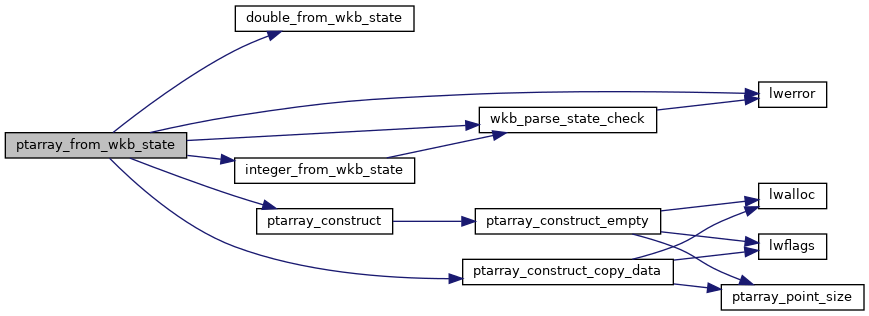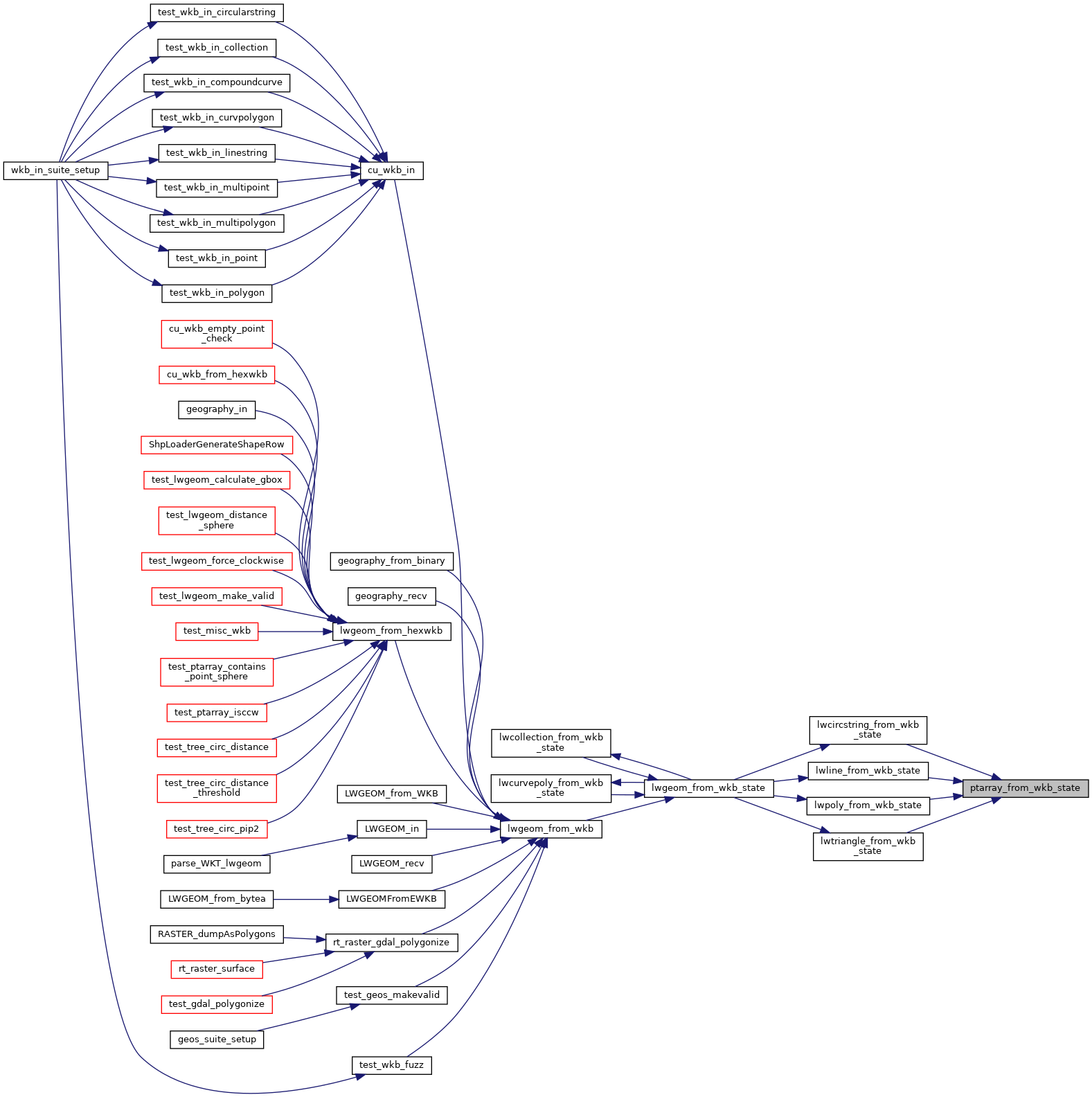◆ ptarray_from_wkb_state()
|
static |
POINTARRAY Read a dynamically sized point array and advance the parse state forward.
First read the number of points, then read the points.
Definition at line 340 of file lwin_wkb.c.
POINTARRAY * ptarray_construct_copy_data(char hasz, char hasm, uint32_t npoints, const uint8_t *ptlist)
Construct a new POINTARRAY, copying in the data from ptlist.
Definition: ptarray.c:305
POINTARRAY * ptarray_construct(char hasz, char hasm, uint32_t npoints)
Construct an empty pointarray, allocating storage and setting the npoints, but not filling in any inf...
Definition: ptarray.c:51
#define WKB_DOUBLE_SIZE
Well-Known Binary (WKB) Output Variant Types.
Definition: liblwgeom_internal.h:92
static uint32_t integer_from_wkb_state(wkb_parse_state *s)
Int32 Read 4-byte integer and advance the parse state forward.
Definition: lwin_wkb.c:278
static void wkb_parse_state_check(wkb_parse_state *s, size_t next)
Check that we are not about to read off the end of the WKB array.
Definition: lwin_wkb.c:131
static double double_from_wkb_state(wkb_parse_state *s)
Double Read an 8-byte double and advance the parse state forward.
Definition: lwin_wkb.c:310
Definition: liblwgeom.h:412
References double_from_wkb_state(), integer_from_wkb_state(), LWDEBUGF, lwerror(), ptarray_construct(), ptarray_construct_copy_data(), s, POINTARRAY::serialized_pointlist, WKB_DOUBLE_SIZE, and wkb_parse_state_check().
Referenced by lwcircstring_from_wkb_state(), lwline_from_wkb_state(), lwpoly_from_wkb_state(), and lwtriangle_from_wkb_state().
Here is the call graph for this function:

Here is the caller graph for this function:
